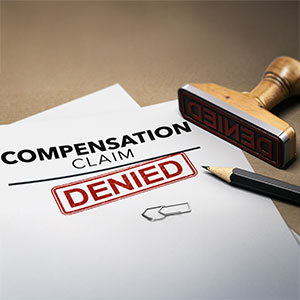Florida’s Medicaid Reduction Formula For Personal Injury Settlements Upheld Without Pro Rata
Personal InjuryIn the case of John Gray v. AHCA, Case Number 1D17-355 (Fla. 1st DCA September 3, 2019), Florida’s First DCA upheld a refusal from an ALJ to entertain a reduction larger than the statutory formula in section 409.910(f), Fla. Stat. even though the injury was very severe and only a small percentage of the overall value of the claim was collected.
Facts and Analysis
Mr. Gray unfortunately sustained a spinal cord injury from a car accident. Medicaid paid bills totaling approximately $65,000.
Mr. Gray sued the driver of car that hit him but was only able to policy limits of $10,000 despite getting a jury verdict of over $2.8 million.
Under section 409.910, the statutory formula would be to take the total recovery ($10,000) and subtract 25% for attorney fees (even though the real contingency fee is higher) and “taxable costs.” Thereafter, Medicaid gets half of what is left.
Doing the math, it appears that the parties arrived at $3,750 ($10,000 minus $2,500 divided by 2). It appears from the opinion that there was not a claim for taxable costs even though there was a trial. I would have thought that the “taxable costs” of a trial would have been more than the $10,000 recovery alone and, therefore, Medicaid should get zero under the formula but I can’t say why there was never a mention of taxable costs.
Regardless, Mr. Gray’s attorneys asked the ALJ to consider that he has only recovered 0.349% of his recovery ($10,000 divided by $2.8 million). Therefore, because Mr. Gray only recovered a small percentage of his actual damages, Medicaid should only be able to recover the same percentage of their lien against the recovery.
Decision of the ALJ and Florida Law on Appeal
Unfortunately, the ALJ found the presumptive amount of $3,750 to valid with no evidence to show that the recovery does not include at least $3,750 of medical costs. Ouch.
Gray appealed the ALJ’s decision to the First DCA challenging that the ALJ 1) improperly placed a lien on future medical expenses, 2) required Gray to prove by clear and convincing evidence that the lien should be reduced, and 3) failing to use a pro rata formula to calculate Medicaid’s portion of the recovery.
These arguments all failed unfortunately for plaintiffs in Florida. However, it is the part of the opinion that REQUIRES the ALJ to apply the statutory formula in section 409.9010(f) that hurts so much when “the plaintiff fails to produce evidence or present testimony showing that the lien amount should be reduced…”
I suppose that testimony could have been had as to not only the “taxable costs” but also with regard to the “spinal cord injury” suffered by Mr. Gray. One can only assume that a jury would not make an award of $2.8 million unless Mr. Gray had a credible spinal cord injury. Even if that had been done, we still couldn’t be sure whether that would have changed the ALJ’s mind or not.
Get Help With Your Florida Spinal Cord Injury Lawsuit
Personal injury lawsuits in Florida can be unforgiving. You will need the best the attorney you can find to help you. To get a free consultation with a Lakeland spinal cord injury lawyer, call Russo Law today.


